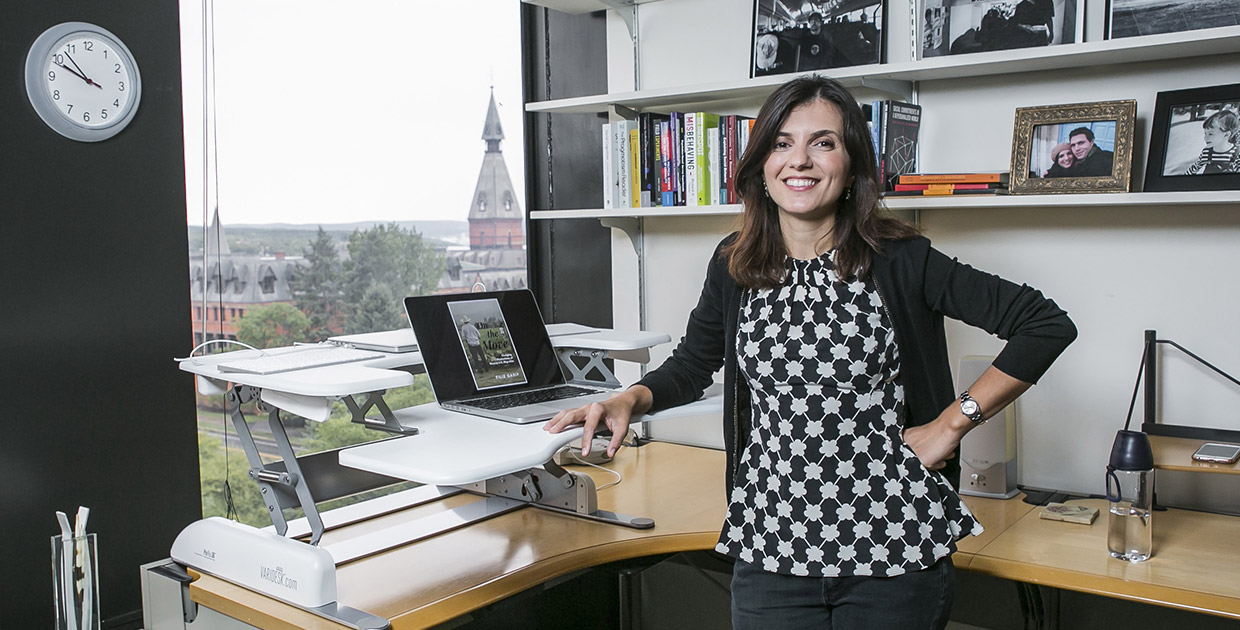Teaching in
the classroom
I use active-learning in my classroom. This means that I talk less and listen more. I try to encourage students to actively engage with the material even in large lecture courses, and give them opportunities to challenge any preconceived beliefs, to learn from their peers, and to gain skills to think critically about their social world.
Courses
I teach courses on immigration, economic sociology, machine learning for policy decisions. This interview covers my brief thoughts on economic sociology, who I was inspired by, and so on. Below are links to the syllabi for my current and previous courses. (At Cornell, I taught an introductory course to sociology in rotation with my colleagues, Kendra Bischoff and Anna Haskins. The syllabus reflects our joint effort. At Harvard and Cornell, I taught an undergraduate-level course on economic sociology—very much inspired by the same-titled course designed by my mentor, Viviana Zelizer. Nina Bandelj—another student of Viviana’s—teaches the same course at the University of California, Irvine.)
Resources & Inspiration
These resources provide inspiration to bring active learning into the classroom.
Dougs McKee’s blog (teach better)
ASA Trails
Atul Gawande’s article on coaching
Atul Gawande’s TED talk

Career Materials
These materials got me at the door at graduate school, helped me find a job and get tenure.
PhD Application
Statement of Purpose (Princeton)
Writing Sample 1
Writing Sample 2
PhD Job Market
Cover Letter
Research Statement
Teaching Statement
Tenure Review
Mentoring
My mentoring strategy is simple. I try to emulate my mentor Paul DiMaggio’s style (which is impossible to do exactly, as I am not him). This includes meeting with my students regularly, asking them to write a memo before each meeting (it is key to have a paper trail not to go in loops), and responding in writing as well. It also involves reminding myself to always listen, to never patronize, to let students find and fall in love with ideas, and then to give them all the support I can. After reading this piece by Atul Gawande, I gained a new insight into mentoring. It is actually similar to coaching. We all need it to get better.
I am privileged to advise (as dissertation chair or co-chair) seven students at Cornell. Their questions (described very broadly and inadequately below) push me outside my comfort zone, and allow me to keep learning.
- Jacqueline Ho: How do we evaluate merit?
- Yunsub Lee: How do emotions flow through social ties and shape economic actions?
- Shumeng Li: How do new markets emerge?
- Yoselinda Mendoza: How does legal status shape migrants’ access to wealth?
- Ben Rosche: Do children from different socioeconomic backgrounds influence each other, and if so, do those friendships impact intergenerational mobility?
- Juhwan Seo: How does the state shape intimate relations?
- Xinwei Xu: How do social ties lead to cultural differentiation (and vice versa)?
- Katherine Zaslavsky: How does diversity shape representation?
